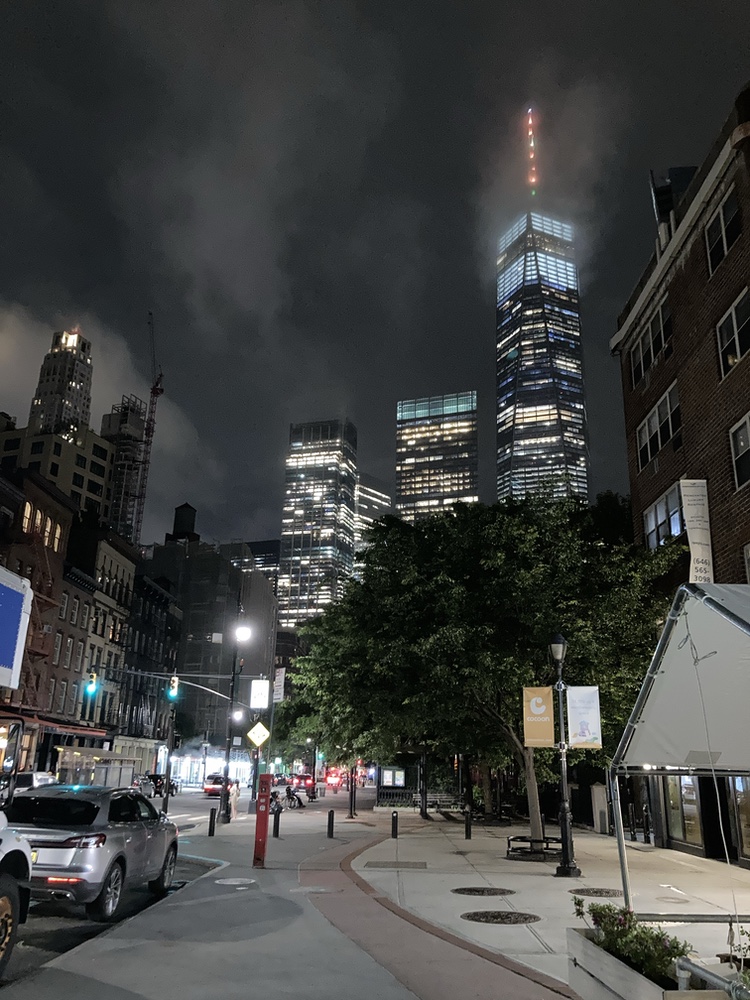How do I live fully when nothing is truly under my control?
I’ve often said I use systems and structure as a way to multiply my efforts. And that’s true, but I’ve learned that the real reason is that I’m afraid. I’m afraid of uncertainty.
It turned out in retrospect that the messy diversity of the forest had been the source of its resilience. When stresses such as storms, disease, drought, fragile soil, or severe cold struck, a diverse forest with its full array of different species of trees, birds, insects, and animals was far better able to survive and recover. A windstorm that toppled large, old trees would typically spare smaller ones. An insect attack that threatened oaks might leave lindens and hornbeams unaffected. The rigidity and uniformity of the system meant that failures were not small and contained but systemic.
~ Tiago Forte from, Productive Disorder: The Hidden Power of Chaos, Noise, and Randomness
That last sentence I’m filing under: Stuff I Wished I’d Learned 30 Years Ago. The big why behind my hyper-organization, maximally-complex systems, and endless aligning of figurative ducks is my desperately trying to control the world around me. With realization comes… the recognition that I have a lot more work to learn to not do. Doing less in reality is hard, but still much easier than doing less in my mind.
Controlling the mind doesn’t take one to freedom. Controlling the mind adds another link to one’s shackles.
~ Wu Hsin
I long knew I needed to stop clinging to control. That sense of control is too heady to just quit cold turkey. But once I realized that all I really had was the illusion of control, it lost much of its power.
Much of insomnia and trouble sleeping is ultimately caused by worrying. When you worry, you get anxious, and when you’re anxious, your body gets ready for action, which directly inhibits relaxation and sleepiness. And to make matters worse, routinely worrying in bed – either as you’re trying to fall asleep initially or when you’re awake in the middle of the night – eventually teaches your brain to associate your bed with worry […] even if you weren’t worried before night-time, simply being in bed can become a trigger for worries and anxiety!
~ Nick Wignall from, How to sleep when you’re a perfectionist
I do recall that I had that problem at one point. The way I solved it was to create other opportunities to empty that stuff out of mind. I regularly reflect on what’s in my control and remind myself of the correct perspective about life in general. I regularly dump out my mind’s endless ideas and possibilities into notebooks. I’ve no idea what would work for you, but you need to figure out what does.
If we possess inward solitude we do not fear being alone, for we know that we are not alone. Neither do we fear being with others, for they do not control us. In the midst of noise and confusion we are settled into a deep inner silence. Whether alone or among people, we always carry with us a portable sanctuary of the heart.
~ Richard Foster
From that sanctuary, it’s clear just two things about my life are certain. I was born, and I will die. I spend a lot of time contemplating my end; Not in a fatalistic, “come at me bro’!” way, but rather with the intention of reminding myself to make the most out of every moment.
An artist’s job is to create masterpieces. Period.
~ Ryan Holiday from, Your Work Is the Only Thing That Matters
Too often I slip into focusing on and tracking what’s easily measured—you know, all those external things: downloads, likes, feedback, and bank balances. But sometimes I manage to remember to just. do. the. work. And then all’s right as rain.
Worrying is impossible without attachment. No one worries about the weather on Saturn, because no one is counting on the weather to be a certain way. The time we spend worrying is actually time we’re spending trying to control something that is out of our control. Time invested in something that is within our control is called work. That’s where our most productive focus lies.
~ Seth Godin
There are many moments where I’m unconscious—quite a few of those moments are while I’m sleeping, but also there are mindless moments aplenty throughout my days. But there are increasingly more mindful moments every day.
This sudden loss has gotten me to face my own death this week. I know it is coming, just not when. I rarely think about it, because life is so in-my-face, but it’s there, waiting. Tyler’s death is such a stark reminder that we never know how much time we have left.
~ Leo Babauta from, The Tragedy & Liberation of Death
A fast—the quickest I’ve found—way to get to mindfulness is to think: This may well be the last time I do this.
the last time I laugh until I lose control of my bladder.
the last time something scares the crap out of me.
the last time I wrench my back shoveling snow.
last time I’m the source of the problem.
last sentence I scribble with a pen.
last conversation with a friend
last hill I scramble up
ride a bicycle
sunset
speak
walk
see
be
i

Leave a Reply